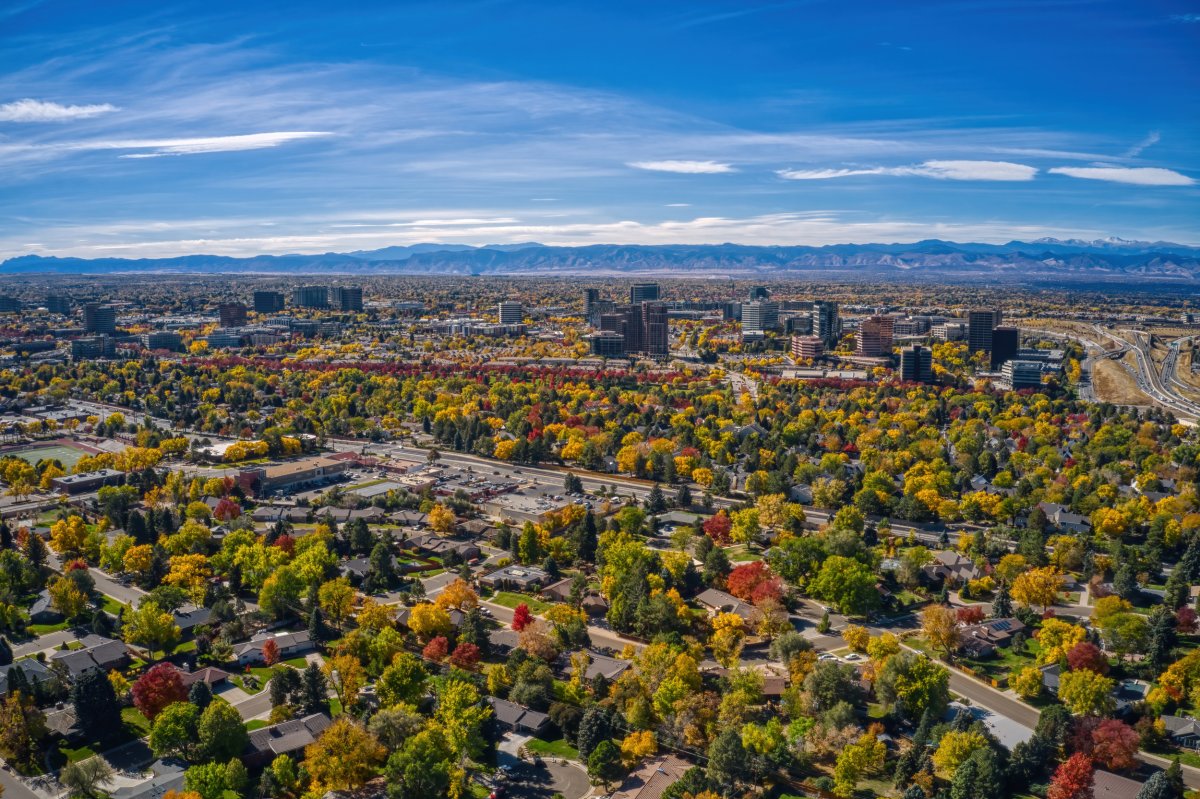While the rest of the United States gets ready to send out millions in rebates to residents, South Dakota has made history as the one state to reject the federal government’s home energy rebates outlined in the Inflation Reduction Act—one expert telling Newsweek that it’s “baffling”.
The rebates were approved by President Joe Biden‘s Inflation Reduction Act and look to help Americans who make home energy efficiency upgrades or appliance purchases across the country.
While the rebates come at no cost to state governments, Governor Kristi Noem went against the grain and rejected the money from the federal government, sparking a backlash from Democrats who say the funds would have helped everyday South Dakota residents with monthly energy bills.
“Governor Noem seems to put her own political posturing in front of the needs of people in South Dakota,” said South Dakota Senate Minority Leader Reynold Nesiba, as reported by Sioux Falls KSFY.

South Dakota Gov. Kristi Noem speaks on stage on the first day of the Republican National Convention at the Fiserv Forum on July 15, 2024 in Milwaukee, Wisconsin. Noem rejected the federal government’s home energy rebates.
Chip Somodevilla/Getty Images
Every other state and U.S. territory has accepted the funds to help residents make home energy upgrades or buy new appliances.
Newsweek reached out to Noem’s office for comment.
Noem’s Bureau of Finance and Management previously said the state declined the funds from the federal government due to limited staffing, since the Office of Emergency Management only had one full-time employee.
“All the state had to do was allow these pass-through funds to come in to allow South Dakota homeowners, landlords to be able to apply for assistance to upgrade their appliances to more fuel-efficient appliances,” Nesiba said.
Noem has previously decided to reject federal money on different occasions. The governor similarly said no to federal money for the Electronic Benefits Transfer program and Climate Pollution Reduction despite it being no cost to the state.
For South Dakota’s part of the home energy rebates, $69 million was available to send to residents who qualify with eligible upgrades, with another $1.8 million allocated to set up the program.
With the funding available, State Representative Linda Duba also criticized the governor’s move over reported staffing numbers.
“Couldn’t we go outside of state government and hire someone to administer the program, the important fact is, this would be 100 percent covered by the federal government to administer these rebates over time,” Duba said, adding that South Dakota had previously hired consultants for coronavirus and PPP money from the federal government.
Alex Beene, a financial literacy instructor for the University of Tennessee at Martin, called Noem’s call a “baffling decision.”
“Even if the excuse of having limited staff to administer the funds is legitimate, it’s the wrong call,” Beene told Newsweek. “We’re talking about millions of dollars in federal aid that will now be unable to reach state residents. That’s an incredible setback, especially in our current economy. Normally, even states who disagree with the Presidential Administration in control take funding like this. It’s a baffling decision.”
Colin Keeler, Director of Financial Systems for South Dakota’s government, previously told KSFY that the decision was made for multiple reasons.
“South Dakota is a small state; our employees work hard for our people, and it is difficult to administer large new federal programs,” Keeler said. “For example, South Dakota’s energy office consists of a single employee. We would have to add multiple employees to administer this Green New Deal program if we chose to apply for the funding.”
Keeler said the state also considers the long-term budgetary consequences of taking on new federal programs before applying for the funding.
“In many instances, a new federal program is only expected to last a few years,” Keeler said. “We do not believe it is in the best interest of the state to hire new employees supported with temporary federal funding, especially knowing that in two or three years the program may be discontinued, resulting in staff layoffs.”
He added: “We also consider the underlying policy of the federal program that is being pushed at the federal level from the federal funding. In the case of this Green New Deal energy rebate program, which was authorized by the Inflation Reduction Act (IRA), none of South Dakota’s federal delegation voted for the bill and have been critical of many aspects of the legislation. We do not believe using federal taxpayer funds to entice people to switch from one appliance to another is a good policy and it should not be influenced or subsidized by the government.”










